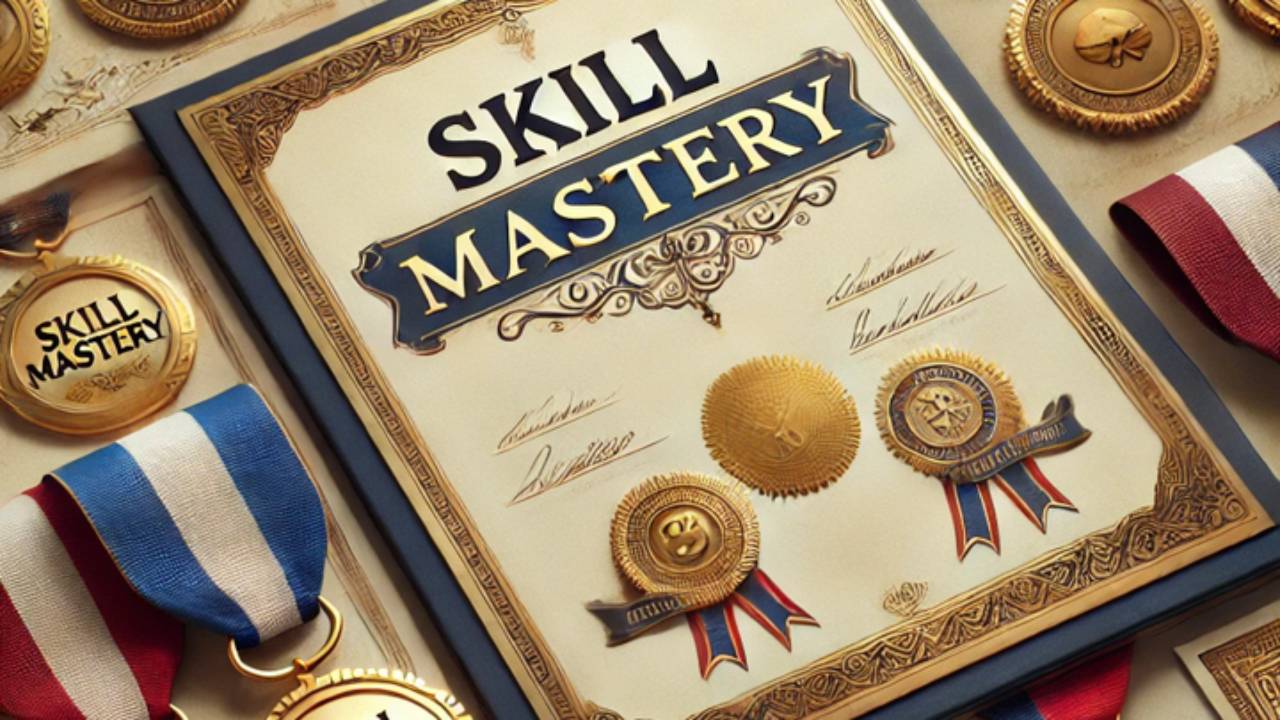What You Should Have Learned in College, MBA, and PhD School—But Probably Didn’t
Jun 25, 2025
Welcome, colleagues, to Myford University.
I’m George Sloane—founder, Dean, and your guide through the land of practical, fast-track, no-BS education.
Here, we teach what works. The stuff you can apply now. Not four years from now. Not after $200,000+ in debt. Now.
Whether you’ve been through college…
…you’re thinking about it…
…or you skipped it entirely and wonder if you missed out—
This post is for you.
Let me tell you: you didn’t miss as much as they want you to believe.
Today’s Thesis: What You Should Have Learned in College, MBA, and PhD School
Higher ed has turned into one of the biggest cons around.
It promises knowledge, confidence, and opportunity.
It often delivers… debt, delay, and disappointment.
Colleges love to parade around complex terminology like "systems thinking," "comparative analysis," or "design thinking" as if they're arcane wisdom reserved for the chosen few.
Let me clear something up right now:
If you don’t know what these things are—don’t worry. They aren’t as mysterious or difficult as the higher-ed industrial complex wants you to believe.
At Myford University, our goal is to make the complex simple, and more importantly, make it useful right away.
We’re not about degrees. We’re about direction. We’re not chasing credentials—we’re building capability.
What You Should Have Learned in Four Years of College
The real value of college—if done right—is foundational skills. Here's what you should have gained:
- Basic research and analysis – Not Wikipedia skimming. Real inquiry.
- Critical thinking – Questioning assumptions. Challenging the obvious.
- Comparative analysis – Weighing two or more ideas, not just swallowing the first one you're handed.
- Problem-solving – Not multiple choice tests. Real, messy problems with no obvious answers.
- Creative thinking – Originality. Improvisation. Lateral thinking.
- Design thinking – User-centered innovation and idea execution.
- Systems thinking – Seeing the forest and the trees.
- Collaboration skills – Actually working well with others under pressure.
- Negotiation skills – Convincing without being a bulldozer.
- Effective writing – Clear, persuasive, structured.
- Presentation skills – Speaking with confidence, clarity, and purpose.
If some of that sounds unfamiliar? You’re not alone.
Higher ed has made a habit of overcomplicating simple ideas to justify outrageous tuition. But here, we cut through the academic fog. We'll show you how to learn and use these tools in plain English.
What an MBA Should Have Given You
Most MBA programs sell the dream: big salaries, sharp suits, executive leadership.
But what should you really walk away with?
- Business research and analysis – Market studies, financial breakdowns, customer deep dives.
- Strategy – Long-term thinking. Trade-offs. Competitive positioning.
- Leadership – Not just “team building,” but decision-making, influence, and vision.
- Finance – Cash flow, profit margins, valuations, KPIs.
- Marketing – Real market research, messaging, branding, positioning.
- Operations – Logistics, supply chains, process improvement.
- Business models & frameworks – SWOT, BCG Matrix, Porter’s 5 Forces, Lean Canvas, etc.
- Negotiation – Knowing when to hold firm, when to concede, and how to get more than you give.
- Business writing – Executive summaries, business plans, pitch decks.
- Presenting to execs – Speaking the language of ROI, risk, and results.
Let me say this clearly:
You don’t need two years and a mountain of debt to learn these things.
Stick with me, and we’ll tackle each one. Clearly. Practically. And fast.
What a PhD Was Supposed to Deliver
Now let’s talk about doctoral programs.
Here’s what you should have developed:
- Advanced research – Hypothesis testing. Literature review. Data synthesis.
- Extreme depth in at least one area – Own a corner of knowledge.
- Flawless writing – Academic writing, professional-grade thought leadership, argumentation.
- Rigorous discussion and debate – Making and defending ideas under pressure.
- Contribution to your field – Not parroting, but shaping the conversation.
That’s what a PhD should be about: insight, not ivory tower jargon.
But again—don’t be intimidated. We’ll break this stuff down and show you how to apply high-level thinking without needing to spend 6 years buried in footnotes.
Never Went to College? You’re Not Behind.
You don’t need a degree to be smart.
You don’t need a diploma to grow.
You just need someone to give you the keys to the right ideas—and show you how to use them.
That’s what we do here.
We simplify the models. We translate the frameworks. And we help you get results.
Whether you’re a welder, a manager, a solopreneur, or a stay-at-home parent looking to upskill for a career change—you’re in the right place.
Thinking About Going to College? Press Pause.
If you’re on the fence about school…
…if you’re hearing pressure from parents, guidance counselors, or coworkers…
…ask yourself this:
“Do I know what I’ll actually get out of it?”
“Is this the only path to what I want?”
“What’s the ROI—my return on investment—in time, money, and energy?”
If you don’t like the answers, you’re not crazy. You’re thinking clearly.
What We Do Here
At Myford University, we’ll give you the playbook:
- Learn the tools MBAs and execs use
- Understand models in simple terms
- Apply the concepts in your life and work right away
- Save time and money
- Get results
We’ll take “academic” and make it actionable.
Final Thought
“Learning never stops. But bullshit should.”
You don’t need to impress a dean.
You need to improve your results.
Let’s do that—together.
Subscribe. Stick with me. Show up.
Welcome to Myford University.
Stay connected with news and updates!
Join our mailing list to receive the latest news and updates from our team.
Don't worry, your information will not be shared.
We hate SPAM. We will never sell your information, for any reason.

